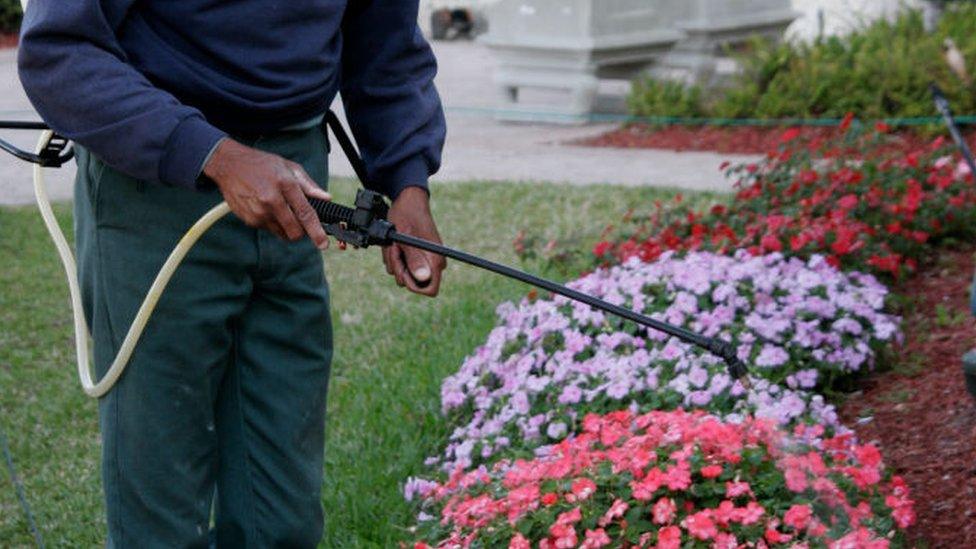Brighton reintroduces weedkiller after ban
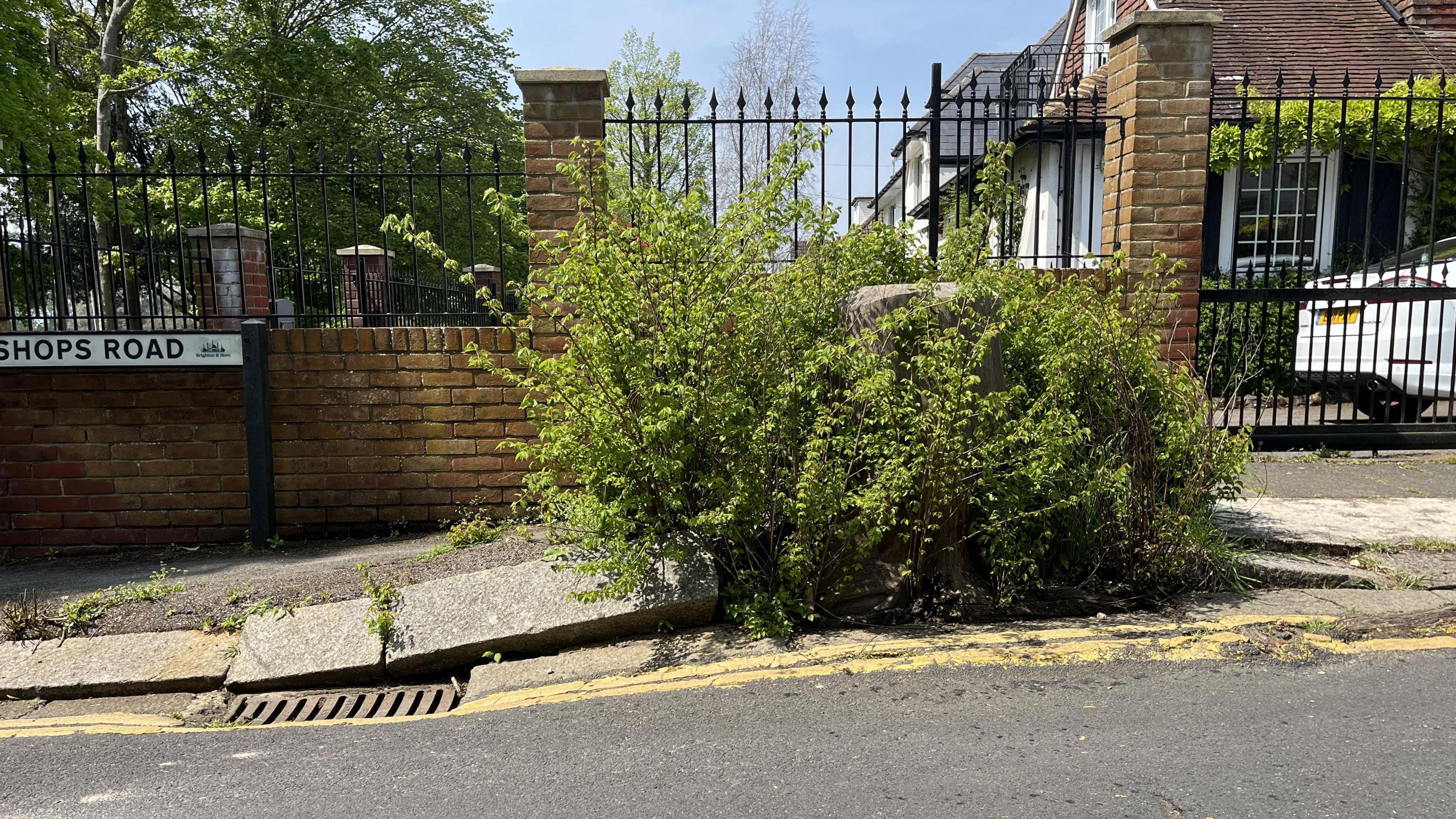
Previously, a petition was signed by more than 7,000 people objecting to the council's decision
- Published
A council which banned a type of weedkiller five years ago has reintroduced its use.
A controlled-droplet application of glyphosate will be used alongside other methods to tackle weeds in Brighton and Hove.
Previously, a petition was signed by more than 7,000 people objecting to the council's decision to reintroduce the weedkiller, which was banned by councillors in 2019.
Brighton & Hove City Council said: "This new approach is designed as a ‘reset’ to tackle the current scale of the problem."
The council banned the use of glyphosate in 2019 after it was linked to cancer and a decline in bee populations.
Its effect on plants is non-selective, meaning it will kill most of them when applied.
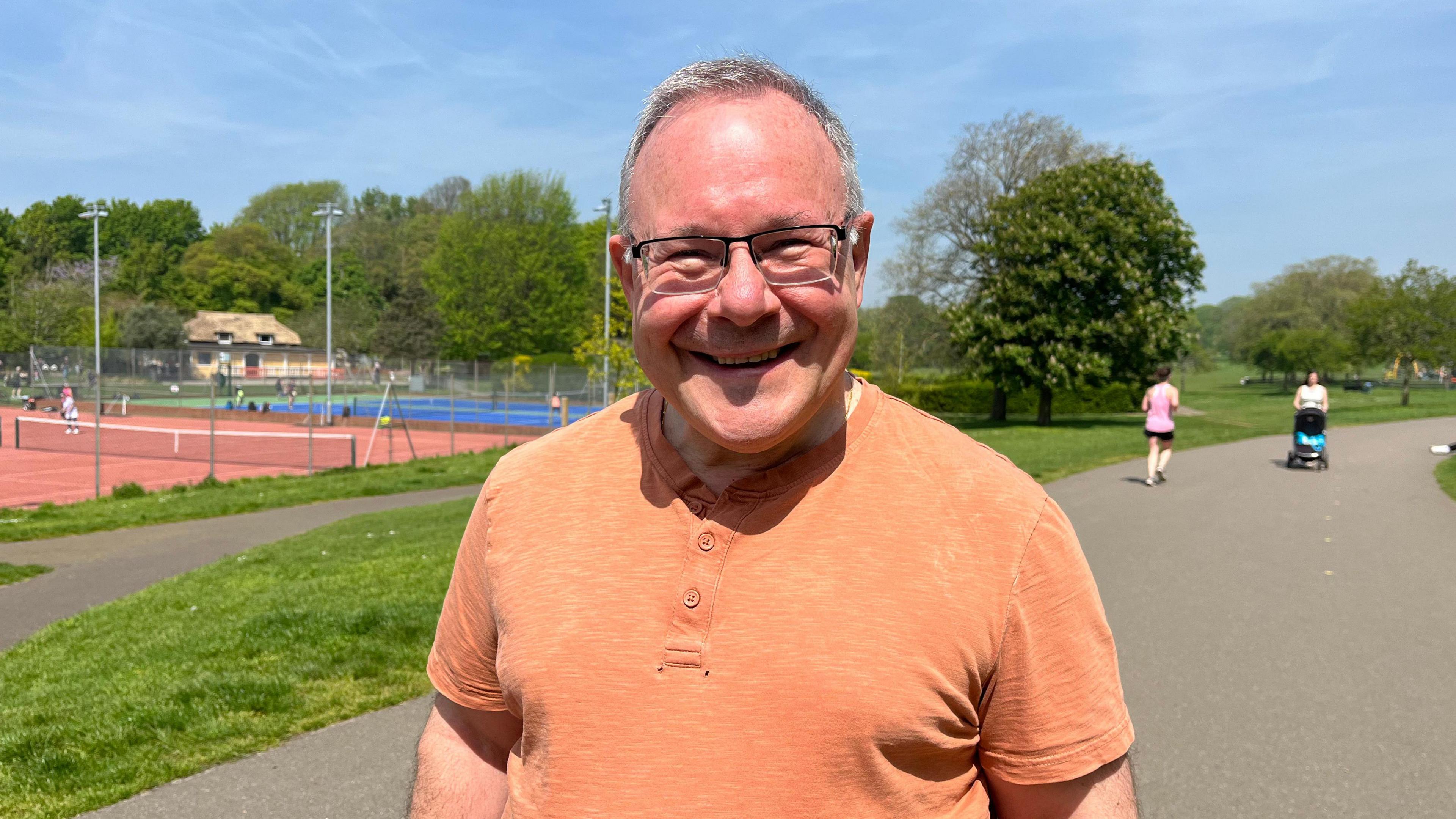
Martin says that he has tripped over on the weeds before
Local resident Paul Rayner said: "We need to get on top of the weeds. It is a problem but if there is going to be potential health impacts on people then maybe we need to consider it further."
Martin Winstone said: "The weeds need to be resolved. I've tripped over them before, and it has been bad where I live. I think we need to use to it sensibly."
Josie Cohen, from Pesticide Action Network UK, said: "We are urging Brighton & Hove City Council to ensure this year is a one off and make sure they are pesticide-free again in 2025."
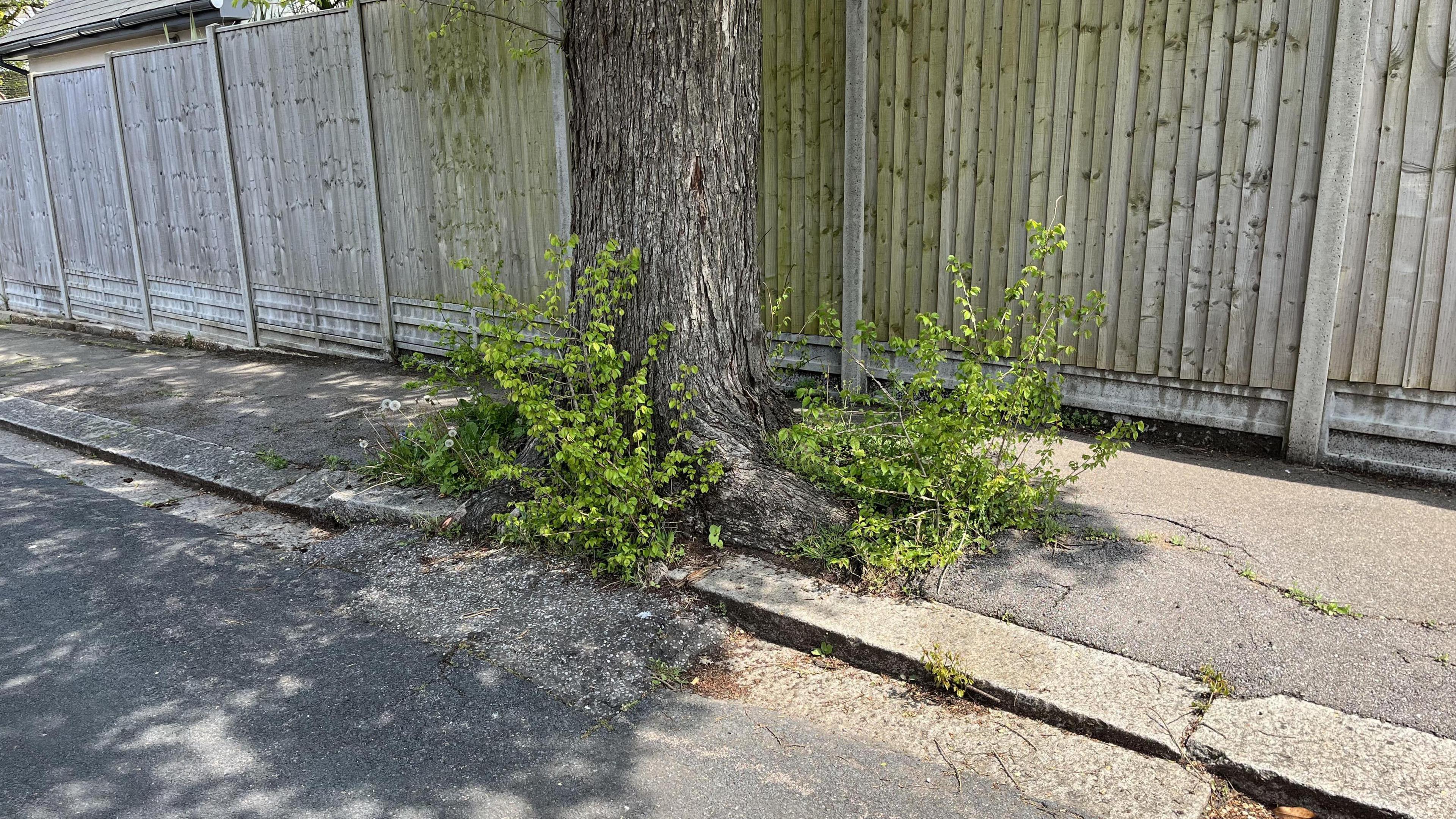
The council says it will only be used on roads and pavements
The council previously said parts of the city went "completely wild" after it banned the use of glyphosate.
It said in a statement ahead of the reintroduction on Monday: "Treatment will only be applied to visible weeds on roads and pavements.
"Glyphosate won’t be used in parks and open spaces or on any roads that don’t need to be treated."
Follow BBC Sussex on Facebook, external, on X, external, and on Instagram, external. Send your story ideas to southeasttoday@bbc.co.uk, external or WhatsApp us on 08081 002250.
Related topics
- Published4 April 2024
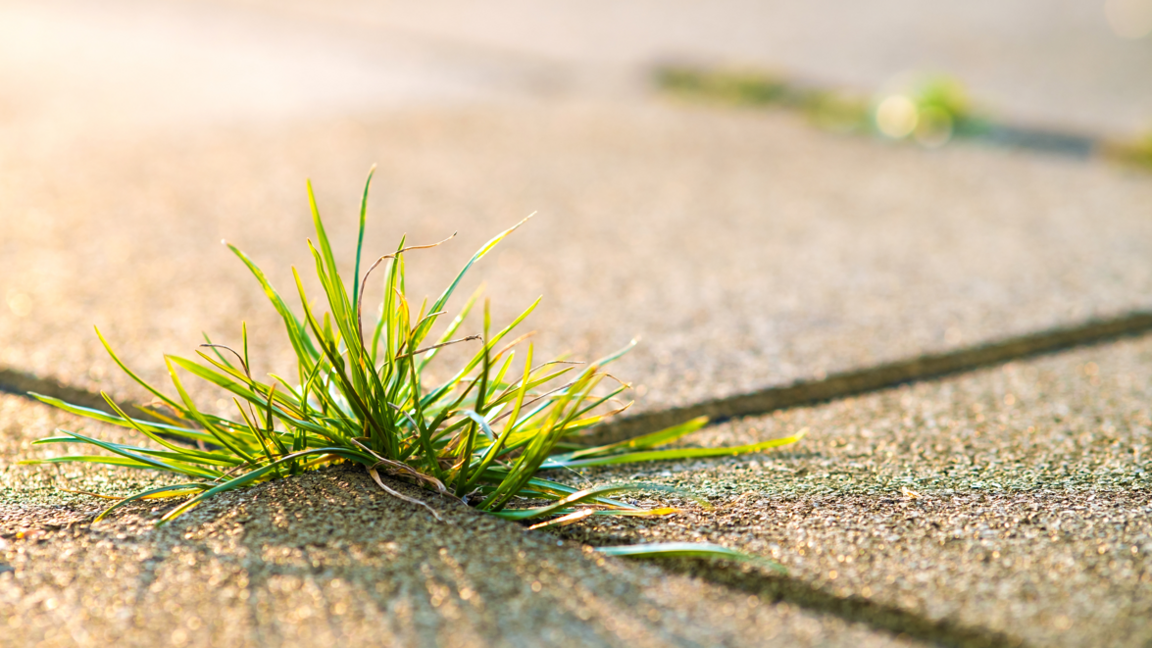
- Published24 January 2024
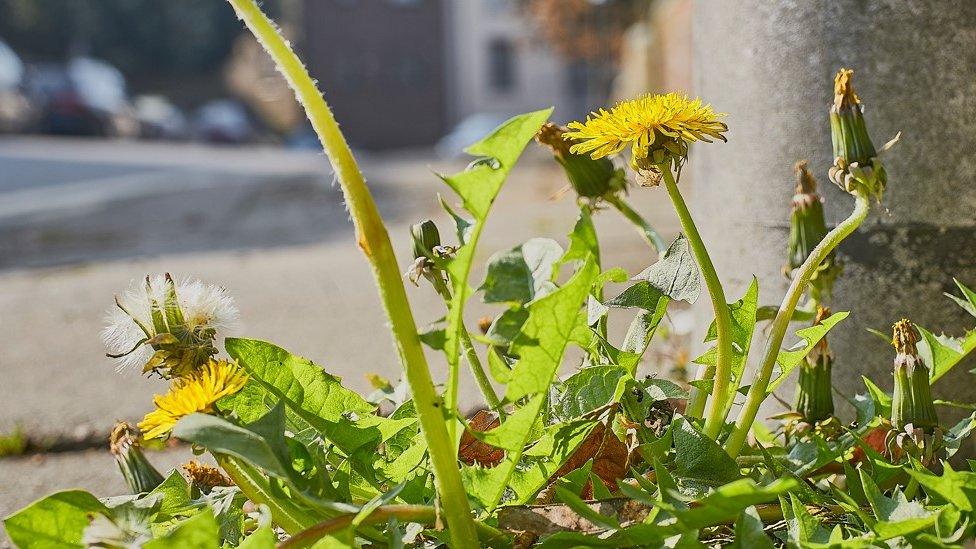
- Published12 July 2022
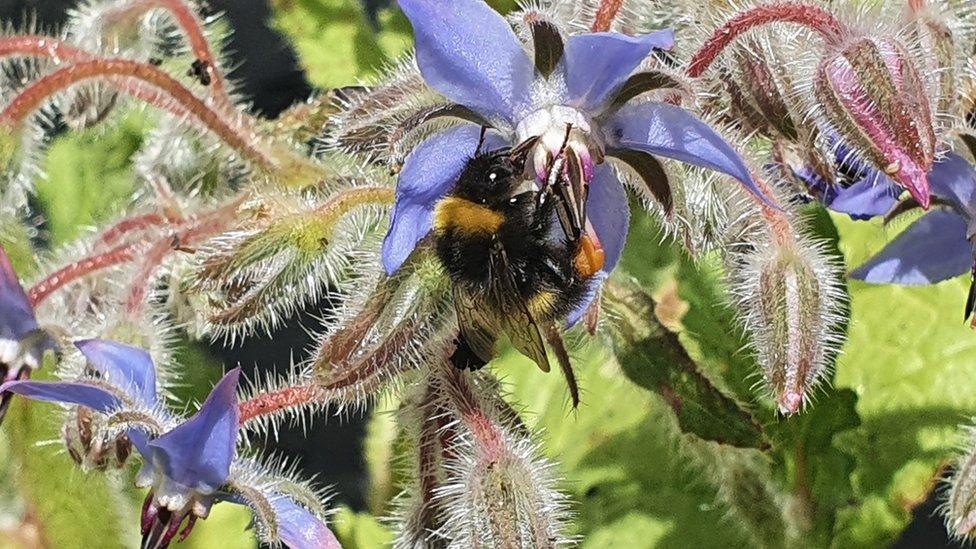
- Published11 August 2018
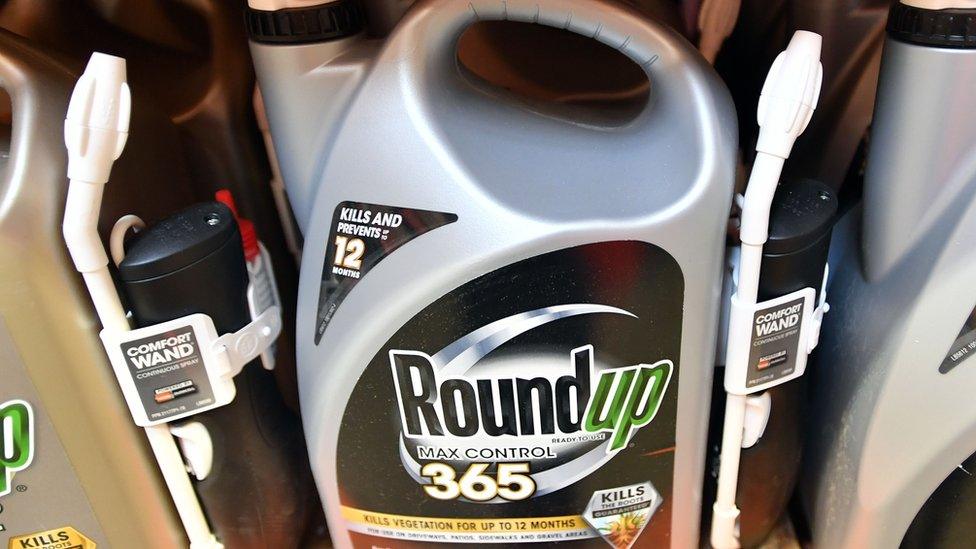
- Published20 March 2019
